•The pullout came after a falling out between France and Mali, in West Africa, ending a military effort that failed to drive out violent extremists.
By Norimitsu Onishi, Ruth Maclean and Aurelien Breeden
France announced on Thursday that it would pull out its troops from the West African nation of Mali, bringing to a bitter end a nine-year military mission that has failed to quash a terrorist threat in the increasingly unstable region and has undermined France’s once dominant standing in many of its former African colonies.
The announcement followed a rapid breakdown in relations between France and Mali’s military rulers, and it threw into uncertainty regional antiterrorism operations spearheaded by France and backed by Western allies.
Jihadist groups have continued to spread across Mali and neighboring countries, as France’s military presence has grown increasingly unpopular. Mali’s leaders, to France’s great chagrin, have turned for help to Russia — a resurgent power on the continent that had already supplanted France’s dominance in another former colony, the Central African Republic.
France’s pullout from Mali had been dreaded in Paris, not only for its geopolitical implications, but also for its powerful symbolism: a humiliating withdrawal of French soldiers from a part of the world where its influence long stood unchallenged, but where it is quickly eroding before newcomers that include China, Turkey and Germany — as well as Russia.
The withdrawal of troops had appeared inevitable in recent weeks, after the French foreign minister called Mali’s military leaders “out of control,” and they retaliated by expelling the French ambassador, who was given only 72 hours to leave Malian soil.
With presidential elections in France less than two months away, the French government had hoped to avoid any comparisons to the chaotic pullout by American troops from Afghanistan last year. France was careful to make the announcement after meeting with African leaders the night before and to portray the development as a “coordinated withdrawal” of France and its allies.
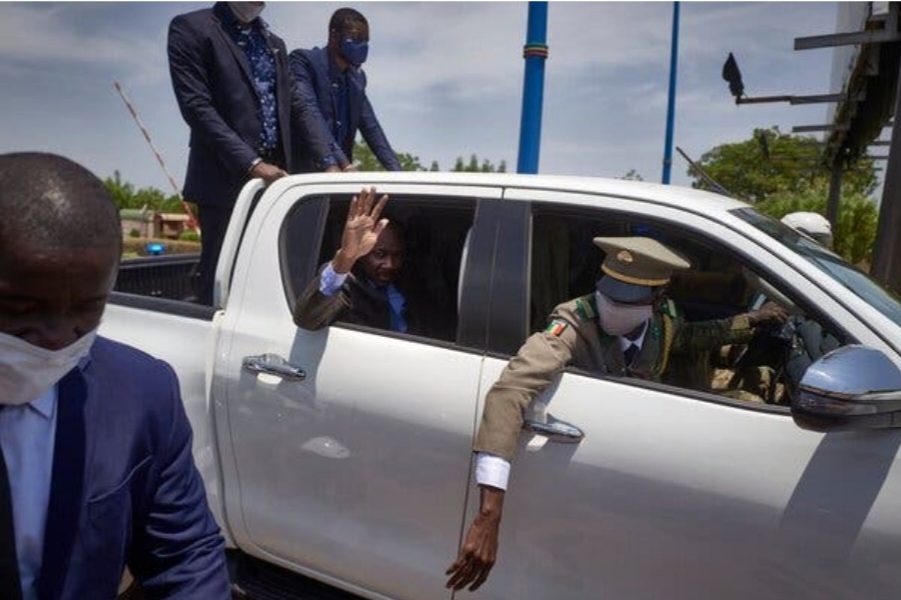
Col. Assimi Goïta, waving, in Mali last year. He led a coup in August 2020 that was prompted partly by worsening security in the country.Credit…Michele Cattani/Agence France-Presse — Getty Images
At a news conference, President Emmanuel Macron of France expressed frustration with Mali’s leaders — who came to power after two successive coups in the last 20 months — and said that the breakdown in relations had prompted France and its allies to rethink their strategy and reorganize their forces.
“We cannot remain militarily engaged with de facto authorities whose strategy and hidden objectives we do not share,” Mr. Macron said at the news conference on Thursday, which came after a dinner on Wednesday evening between the French leader and Western and African counterparts, and ahead of a summit between European Union and African Union leaders in Brussels.
But in Mali and in the rest of the region, the pullout will be seen as a defeat — not just of any foreign power, but of France, which, in its complicated post-colonial relations with its former colonies, still looms large in the lives and minds of many Africans.
“They may be saying that they’re choosing to leave, but really from the Malian perspective, they’re being kicked out,” said Hannah Armstrong, an independent analyst focused on the Sahel region, a wide strip of land that cuts across Africa just below the Sahara.
France’s hasty retreat will likely be hailed as a major victory by the jihadist groups: The withdrawal of foreign forces is one of their two main demands, along with a transformation of society and politics in line with their strict interpretation of Shariah law, said Ibrahim Yahaya Ibrahim, a Sahel analyst for the International Crisis Group.
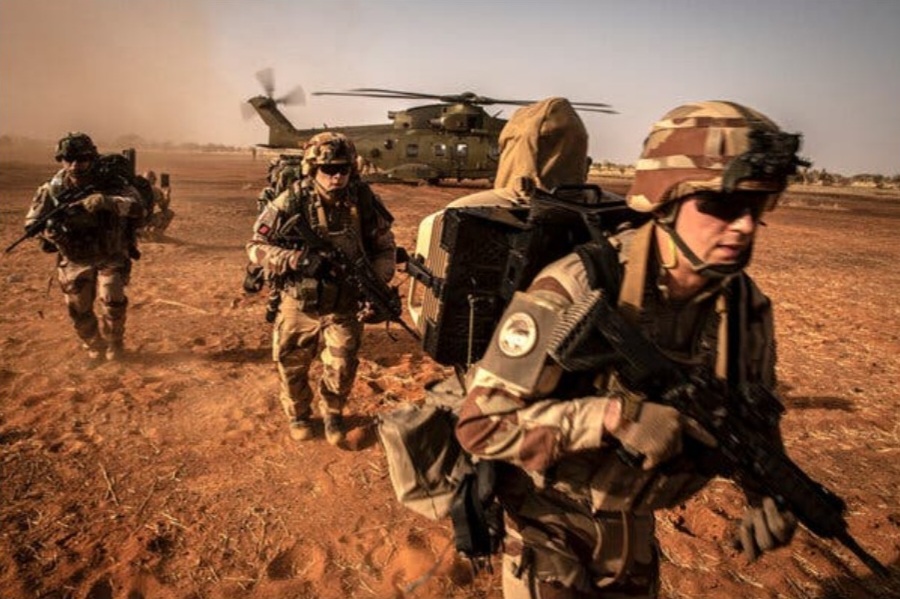
French Foreign Legion troops in northeastern Mali in 2020. Thousands of French soldiers there have been fighting an elusive enemy that is growing in reach.Credit…Finbarr O’Reilly for The New York Times
But it could also be welcomed by Mali’s military rulers, who have capitalized on growing anti-France sentiment by the Malian public, which holds France partly responsible for worsening security, and corruption among the political elites that the military overthrew.
Mr. Macron said that three military bases in Mali would be shuttered over the next four to six months, in coordination with Malian forces.
While he said that France and its allies were still discussing how their forces would be redeployed, he suggested that there would be a pivot to neighboring Niger and a bigger focus on countries in the Gulf of Guinea, as well as on programs to help civilian populations before military operations become necessary.
Beginning in Mali in 2012, terrorist groups across the Sahel took up arms against their governments, taking advantage of existing grievances held by marginalized communities, recruiting young men with few prospects and cowing villages in rural areas into submission.
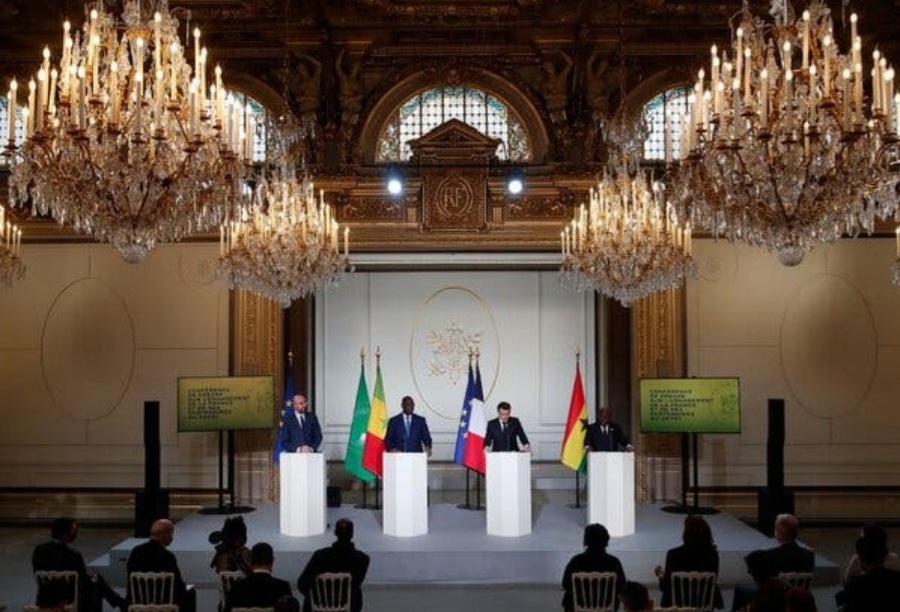
From left: Charles Michel, president of the European Council; President Macky Sall of Senegal; President Emmanuel Macron of France; and President Nana Akufo-Addo of Ghana spoke in Paris on Thursday about the military efforts.Credit…Pool photo by Ian Langsdon
Insurgent groups in Mali, as well as in neighboring Niger and Burkina Faso, have attacked armies that are ill trained or poorly equipped to maintain security in the vast tracts of land that comprise the sand-swept region, and whose own abuses often make things worse. The militants also attack civilians; massacres have become a regular occurrence.
France sent troops into Mali in 2013 to beat back armed Islamist extremists who had taken over its northern cities, and France’s soldiers initially received an ecstatic welcome. Mali had requested the intervention. The campaign had been expected to last only a few weeks.
But after successfully routing extremists from the cities, France decided to stay on, and the scope of its mission mushroomed. Now, over 4,000 French soldiers are currently deployed across the Sahel. Most of them were in Mali, where there is also a 15,000-strong United Nations peacekeeping force.
The military coalition, led by France and Mali but comprising other West African and European armies, had long been failing to stem the tide, and worsening security was one of the factors that led to Mali’s coup in August 2020. As its counterterrorism mission in the Sahel, Operation Barkhane, was prolonged, the popularity of the French-led intervention plummeted.
“Ten years into this crisis, it’s pretty clear that everybody’s Sahel strategy has failed lamentably,” said Ornella Moderan, the head of the Sahel Program of the Institute for Security Studies.
As the mission risked turning into a quagmire, France announced last June that it would begin to draw down its troops fighting under Barkhane, which receives operational support from the United States.
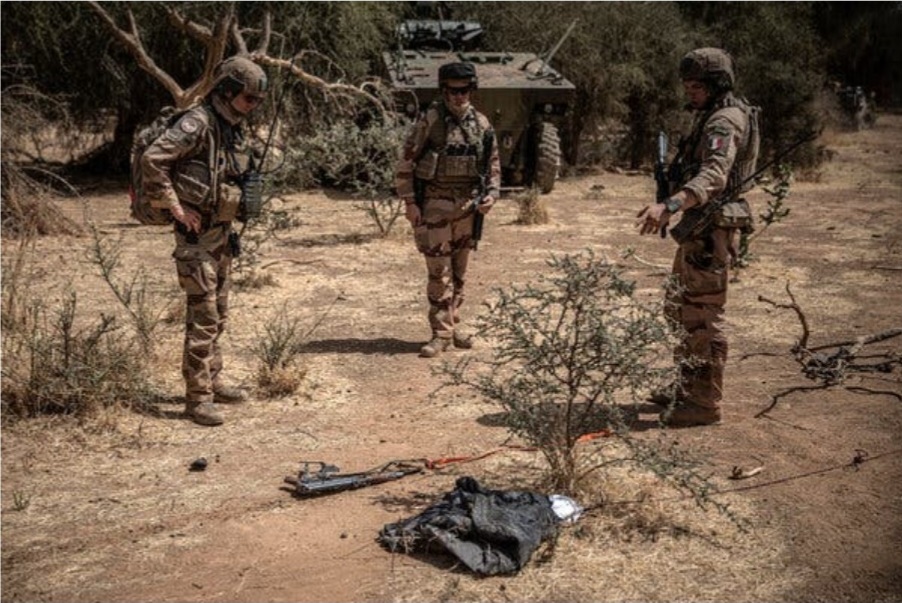
French Foreign Legion soldiers examining a weapon and clothing abandoned by a suspected fighter in northeastern Mali, near the border with Niger, last year.Credit…Finbarr O’Reilly for The New York Times
Mr. Macron has spoken emphatically about wanting to reset France’s relations with Africa and build ties outside its traditional sphere of influence, especially with Nigeria and other economically dynamic English-speaking nations.
France’s diplomatic power rests largely on its influence in its former African colonies, along with its nuclear arms and its permanent seat on the United Nations Security Council. With an eye on the elections in France, Mr. Macron was eager to burnish his image by meeting recently face to face with President Vladimir V. Putin of Russia to discuss the Ukraine crisis, even as Russia is believed to be hurting France where it may matter most: in Africa.
Between 800 to 1,000 mercenaries belonging to the Russian Wagner group are now believed to be in Mali, and their numbers are expected to grow, according to senior U.S. defense officials. France said the mercenaries were invited by Mali’s military rulers, who have denied the accusation.
The Wagner Group — a private military force founded by a former Russian intelligence officer and linked to an associate of Mr. Putin — has played a key role in bringing the Central African Republic, another former French colony, into Russia’s sphere of influence.
But France’s loss of influence in Mali — bordering a group of nations that formed the core of France’s former colonial empire — is far more significant. It was at the heart of what was once known as “la Françafrique,” the neocolonial entity formed by France and its former colonies, bound together in a web of collusive economic and political ties.
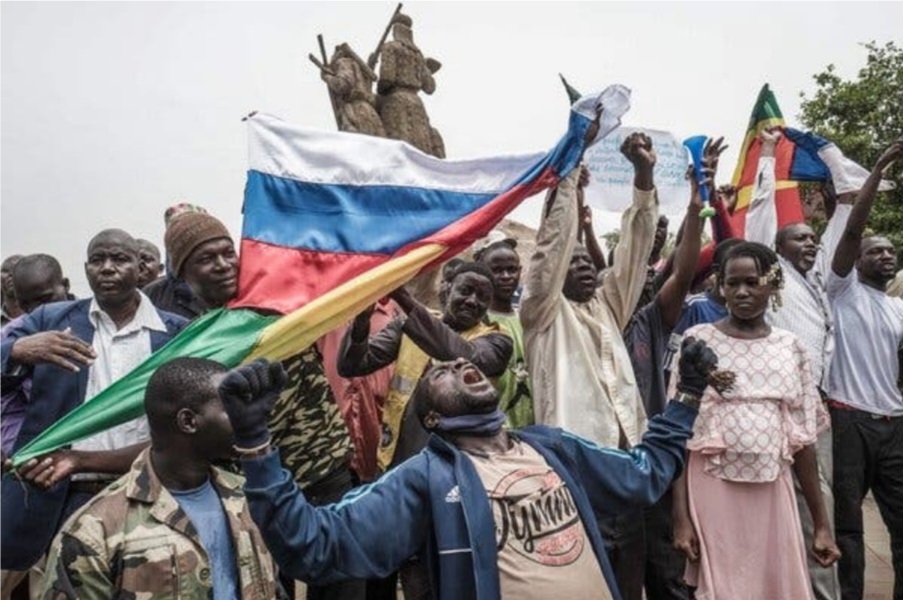
Image
Protesters in Bamako, the capital of Mali, during a demonstration last year against French influence in the country.Credit…Michele Cattani/Agence France-Presse — Getty Images
By coincidence, the announcement of the pullout occurred on the same day as another milestone in the history of France in Africa. In a French village in Brittany, Vincent Bolloré, a French industrialist who for decades embodied “la Françafrique,” was to hold a much publicized party celebrating the 200th anniversary of his family firm and marking his upcoming retirement.
For decades, his company, Bolloré Africa Logistics, controlled the ports and transportation infrastructure across swathes of the continent, making Mr. Bolloré one of the most powerful businessmen in Africa and close to African and French presidents alike. With Mr. Bolloré’s retirement, his company is moving to sell its African businesses to MSC, an Italian-Swiss company.
A few weeks ago, French and African news media reported that one of Mr. Bolloré’s sons and the former French president Nicolas Sarkozy quietly visited Alassane Ouattara, the president of the Ivory Coast, to discuss the sale — in what was perhaps, with the pullout from Mali, another development in the closing chapters of “la Françafrique.”
Norimitsu Onishi and Aurelien Breeden reported from Paris, and Ruth Maclean from Dakar. Mady Camara contributed reporting from Dakar and Adèle Cordonnier contributed research from Paris.
© 2022 The New York Times Company
Credit | The New York Times
